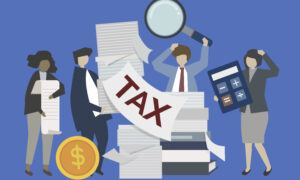
Financial experts recommend that you save at least ten percent of your take-home income (after taxes have been deducted). But what’s more important than the amount you save is getting into a habit of saving based on your personal goals and what’s realistic for you. To determine what makes sense for you:
List and prioritize your life or financial goals
How do you want your life to be different six months from now? In a year? In five years? For your top goal, put a date and dollar amount on it. How much would need to set aside each month to reach that goal? Is that amount possible for you? If not, what could you change?
Prepare a realistic spending plan
Gather up all of your records related to income and expenses for one month. Then subtract your expenses from your income. How much is left over? Does that feel right? Could you make changes to your earning and spending habits to set more money aside?
Consider your overall financial picture
If you have a significant amount of debt, are having trouble making ends meet, or are in the middle of a financial crisis, taking care of those situations should take precedence over saving for future goals. Once your financial situation has stabilized, think about starting to save for an emergency fund to provide a safety net if your car breaks down or you lose your job.
Start small
If you are not in the habit of saving or money is tight, commit to a small amount that you will be able to set aside on a monthly basis to start growing your savings over time.
Find a savings product that works for you
There are a variety of savings products out there that offer different rates and features. Of course, getting the best rate possible is important. And there may be other features that are important to you. Do you want your savings account attached to your checking account for easy transfers? Do you want restricted withdrawals to prevent temptation?
Save irregular and extra income
As your income grows or you have unexpected windfalls (bonuses, tax returns, stimulus checks), plan to set most, if not all, of that money aside to boost your savings.
***
Keep in mind that finances are personal! Experts may recommend ideals, but it’s up to you to determine your own sound and realistic financial practices. Follow these tips to build your savings habit today.


